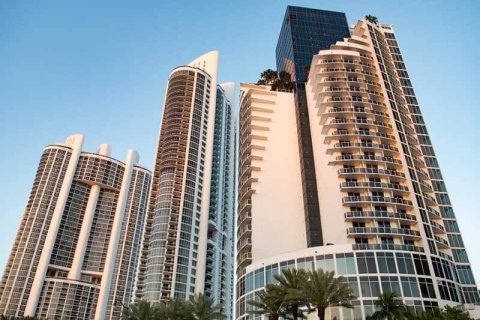
A new report published by the Community Associations Institute revealed that 74.2 million Americans, or approximately 28% of the entire US population, are currently part of homeowners associations, condominiums, or housing co-ops. As of 2021, there were about 358,000 community associations in the country, almost 50,000 of them in Florida. The combined value of residences within them is almost $11 trillion.
Community associations have been growing steadily for decades, the report of the Community Associations Institute says. The overwhelming majority (89%) of homeowners and residents of condominiums rate their general experience of being part of a community association as Very Good (38%), Good (28%), or Neutral (23%), according to the 2022 Homeowner Satisfaction Survey.
The report shows that associations’ reserve funds raise approximately $26.6 billion in fees for repairs, replacements, and upgrades of communal property, e.g. replacing roofs, repairing streets, swimming pools, and elevators, ensuring compliance with new environmental standards, and implementing new energy sources.
Florida’s new condominium legislation requires that buildings three stories tall and higher finance their reserves and pass engineering inspections. This will considerably increase the spending of residents of multi-family houses in this state. Such communities will probably have to raise their association fees to cover current operating costs, as well as long-term repair and replacement.
Boards of Directors and property managers who discover that their reserves are extremely underfinanced and need significant increase must report this grave state of affairs and answer homeowners’ questions at meetings. Such an approach is required to efficiently demonstrate the expenses on condominium upkeep and compliance with the new financing and inspection requirements. All association members must have a clear awareness of everything required to meet their condominium’s standards and lay by enough money for forecasted long-term spending on maintenance, repair, and replacements.
Careful accounting of such forecasted long-term expenses by competent independent experts is the best way for associations to answer all questions and address their members’ concerns. Studies of reserves must provide a profound analysis of the state of all shared-use facilities, including roofs, landscape design, building exteriors, parking spaces, elevators, swimming pools, HVAC equipment, sanitary fittings, electrical fixtures, drainage, and other elements.
Accurate forecasts of such long-term costs require continuous financial monitoring combined with regular inspections. With all the financial and budgetary challenges currently faced by many communities, it is certain that house and condominium owners will demand full disclosure and transparency of all the association’s costs and expenses.
